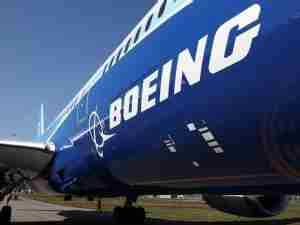The Dubai government-owned operator has been relatively unscathed by the economic downturn in the emirate which forced some state-owned conglomerates like Dubai World to restructure debt and consider asset sales.
"We continue to invest our profits in growing the business and our healthy financial position enables us to successfully meet all of our financial commitments and raise financing for future aircraft deliveries," Sheikh Ahmed bin Saeed Al-Maktoum, the carrier's chairman and chief executive, said in a statement.
Emirates, a major customer to Airbus and Boeing , said it took delivery of six new aircrafts in the first-half, including five A380s and one Boeing 777. The airline expects to take deliveries of two new aircrafts before the end of the financial year, it said, without elaborating.
Emirates said it ordered 62 aircraft in the first six months of the year and launched six new destinations since April.
The rapid expansion of Emirates -- as well as Gulf majors Etihad of Abu Dhabi and Qatar Airways -- has unnerved older airlines and fuelled mutual accusations of protectionism. Many carriers fear Gulf-based superjumbos will drain their own hubs.
In October, Emirates heaped pressure on European carriers in an escalating airlines trade dispute, dismissing its rivals' subsidy claims and voicing plans to expand its fleet to include 120 Airbus A380 superjumbos.
Emirates, which boosted its A380 orders to 90 planes in June, is only constrained by a shortage of space to park the world's largest aircraft, its President Tim Clark said in a challenge to the market power of older, recession-hit carriers. [ID:nN12209677]
The carrier, which started in 1985 with two planes, has grown to rival airlines such as Qantas Airways and Singapore Airlines for passenger traffic between Europe and East Asia.
Soaring Profits
An Emirates flight was escorted by fighter jets to New York's John F. Kennedy airport last week after parcel bombs sent from Yemen and bound for the U.S. were intercepted in Britain and Dubai.
Security fears triggered by last week's air cargo bomb alerts have raised the prospect of increased global trade costs and fueled debate over the technology needed to screen packages and who should pay for it.
In the meantime, Emirates posted net profit for the first half of the year of 3.4 billion dirhams ($925.9 million) up from 752 million dirhams for the same period last year.
Emirates said revenue, including other operating income, for the first half was 26.4 billion dirhams ($7.19 billion), a 35.5 percent increase over the 19.5 billion dirhams it reported in the year-ago period.
The airline, the largest customer for the Airbus A380 super jumbo, said it carried 15.5 million passengers in the first half of the year and its passenger load factor stood at 81.2 percent for the period, its highest ever for a six month reporting period.
Cargo tonnage for the first half rose 23.7 percent to 897,000 tonnes. The airline said cash balances grew to 12.5 billion dirhams at end of Sept, an increase of 18.5 percent when compared to March 31.
Operating costs for the first six months of the year rose 22.6 percent to 23 billion dirhams hurt by higher fuel prices, Emirates said. (Reuters)








